The First Year
Whether this is your first child or not, parenting a new baby is a lot of work!
In Our Own Voices: Early Parenting
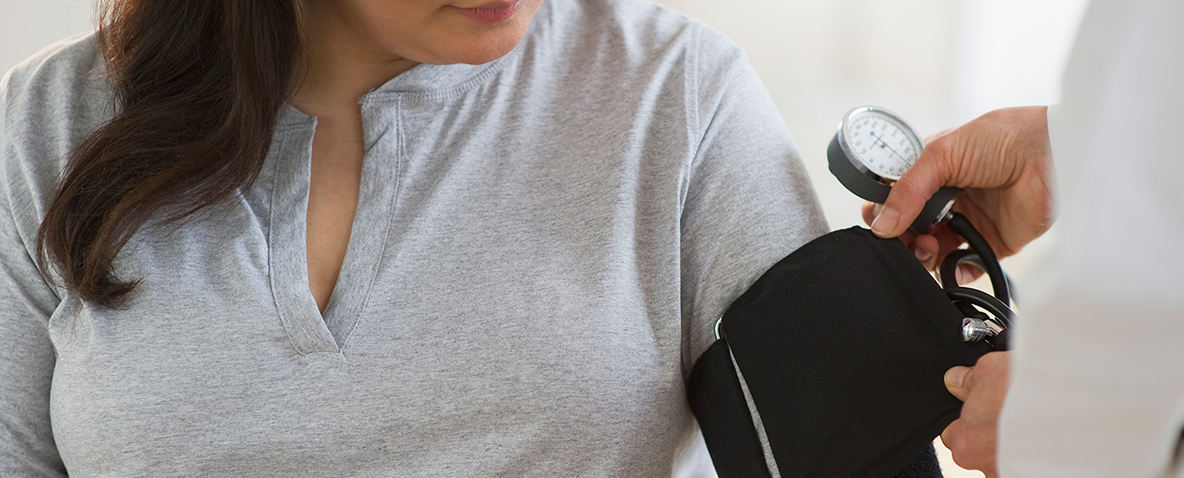
Being a Parent
Remember to put your recovery first. In addition to staying connected with your treatment and recovery supports, also make sure you see a doctor for your postpartum check-up. Believe it or not, it’s already time to start thinking about contraception if you don’t want to get pregnant again right away.
This section will help you:
- Find out more about your baby’s development
- Learn ways to soothe and communicate with your baby
- Remember the importance of both self-care and baby care
Read along or listen to this section using the audio player.
The early days of parenting bring a flood of emotions. You may feel in love with your baby, happy and relieved, or you may feel so tired and desperate that it’s hard to think straight. All mothers go through this. We have some tips for these early days that might help.
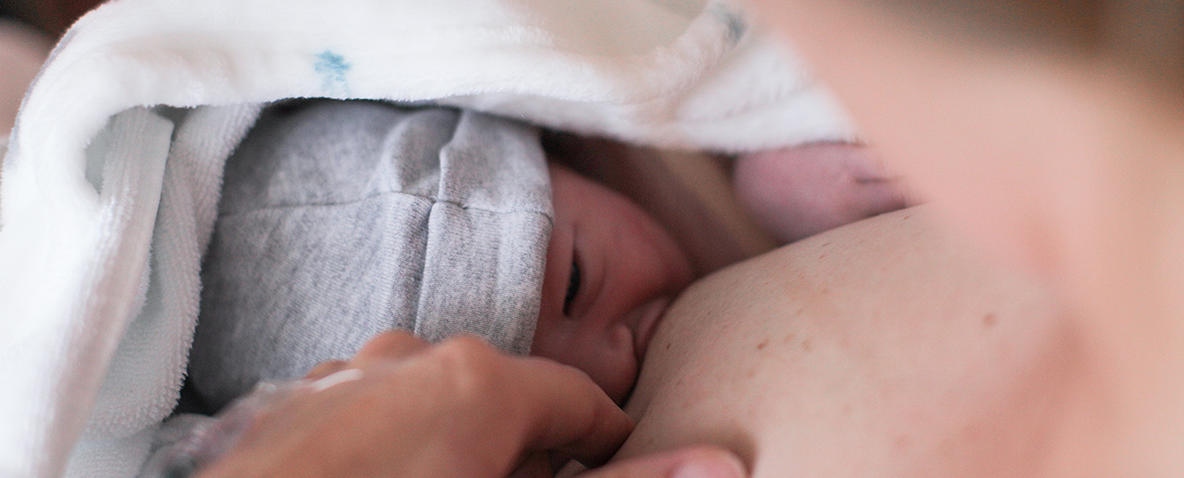
Being a Newborn
Let’s start by understanding what the world is like for a newborn, using the five senses as our guide.
Read along or listen to this section using the audio player.
Newborn babies can hear very well. Their ears are still developing, so they respond best to high-pitched, exaggerated sounds and voices. This is why high-pitched cooing and baby talk are a good way to communicate with your baby. White noise, like the sound of a vacuum cleaner or a fan, can comfort babies because it sounds like the soothing, whooshing noises of the womb.
Loud noises can scare a new baby, or even damage their hearing. If you are going to be around very loud noises (like fireworks or a concert) it’s best to bring ear protection for your baby. Babies born with substance exposure can be even more sensitive to loud noises when they are born. Keep the sounds of the room low and soothing to comfort these babies.
Because they can hear in the womb, newborns are able to tell their mother’s voice apart from all other voices. They can even recognize songs or stories you told them during the last six weeks of your pregnancy! Newborns are comforted by their mother’s voice, especially when they are lying against their mother’s chest and can also feel the vibrations of her voice.
Read along or listen to this section using the audio player.
When babies are born, they can only see about eight to 12 inches away, before things start to get blurry. This is the perfect distance for looking up at mom or whoever is holding them. This limited vision helps them feel attached to you, or whoever holds them the most.
Newborn babies like to look at shapes and patterns or contrasting colors. Black and white designs and bold patterns will hold their attention the most, since they are not yet seeing in color.
At about two months, their eye muscles will strengthen and their eyes won’t drift as much. They will begin to follow objects with their eyes. At four months, babies begin to see colors and they love them! They also will have better depth perception, so they will start to spot things across the room.
Remember that some babies who are born with substance exposure will find bright lights and lots of eye contact too overwhelming. These babies are developing normally, they just have different needs at first. Keeping the lights low and allowing these babies to look away when they need to will help them recover more quickly.
Read along or listen to this section using the audio player.
Touch is the first sense to develop in the womb, and is probably the most advanced at birth. Babies love physical contact: being held, stroked, and cuddled. Physical touch is the best way to bond with your baby. Here are some ways to connect with your baby:
- Skin-to-skin contact, which means holding your baby’s bare chest against your bare chest. Wrap both of you up loosely in a blanket to make sure you’re both warm enough.
- Rub your baby’s back after a feeding to make sure they get any air out.
- Swaddle your baby in a soft wrap or blanket. This is also an important part of Safe Sleep. See the Resources section for more information about this.
- Give your baby a gentle massage. This can be especially soothing for babies who are born with substance exposure. Sometimes their muscles are a little tense, so a gentle rub can feel good. Ask a nurse or your midwife or doula for tips on infant massage.
Read along or listen to this section using the audio player.
Your baby’s sense of smell develops when you are six months pregnant. Babies use smell to get to know you and this world. In fact, a baby can tell the smell of their mother’s breast milk apart from other milks before they are one week old!
You can help your baby feel safe by letting them get to know your smell. Even if you are not breastfeeding, your baby will start to learn your smell.
Other people in your baby’s life, like your partner or parent, will also become familiar smells to your baby. Holding your baby close, so that they can smell a familiar adult, will help soothe them if they are upset. If a new person is holding your baby, offer them one of your t-shirts or something that smells like you at first to help your baby feel safe.
Read along or listen to this section using the audio player.
Your baby’s sense of taste begins to develop while you are pregnant. Eating many different foods will help your baby develop a healthy sense of taste. After your baby is born, the foods you eat change the flavor of your breastmilk.
Some women try to eat lots of different foods, like bitter vegetables or spicy foods, to help their babies get used to lots of different tastes. If you are breastfeeding, you can also help keep your baby healthy by eating foods with lots of vitamins and nutrients.
A baby only needs breastmilk or formula for at least the first four months of life. Wait until they are four to six months before offering tastes of foods or water.
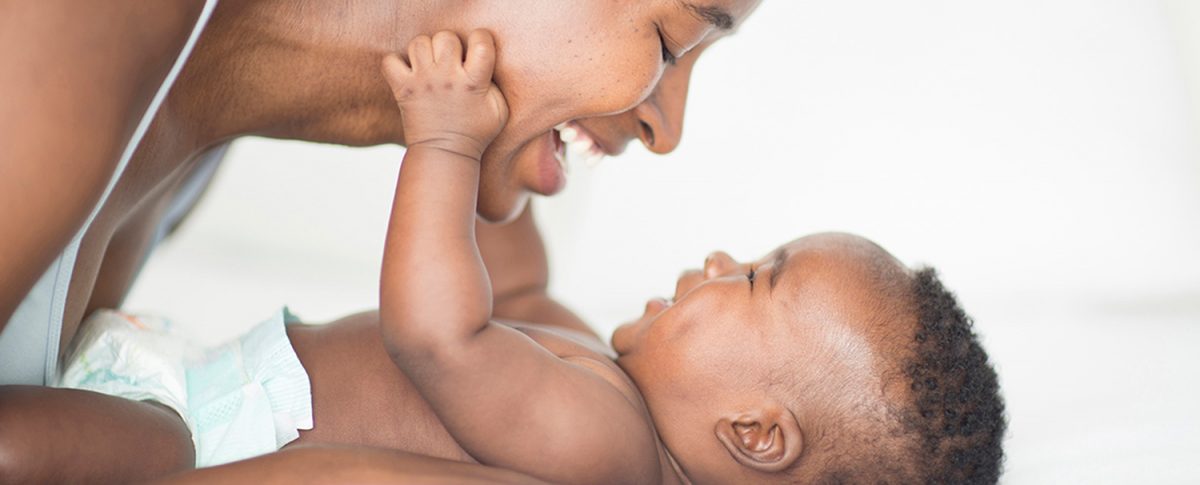
Your Job
During the early days of parenting, you have a few tasks:
- Keep your baby safe and loved
- Take care of yourself
- Use your support team
Read along or listen to this section using the audio player.
How does your baby know they are loved? Every time you do something caring for your baby, every time you respond to them when they are trying to tell you what they need, your baby learns that they are loved and safe.
Become a student of your baby. Notice how they respond to sights, sounds, touch. Remember that babies don’t have many ways of dealing with new experiences. Babies can get overwhelmed, just like you or me. They will try and tell you this; they may turn their head away, cry, become tense, or sneeze. Those could be signs that there is too much going on around them. Try to look for these cues and respond to them. Discover what other ways your baby has of telling you that they need something. It doesn’t at all mean you’re doing anything wrong. It’s just like the beginning of any relationship: we communicate our needs and our partner responds as they get to know us. This is just the beginning of your relationship with your baby. Take a break whenever you need to, and try to stay loving and curious, loving of yourself and your baby.
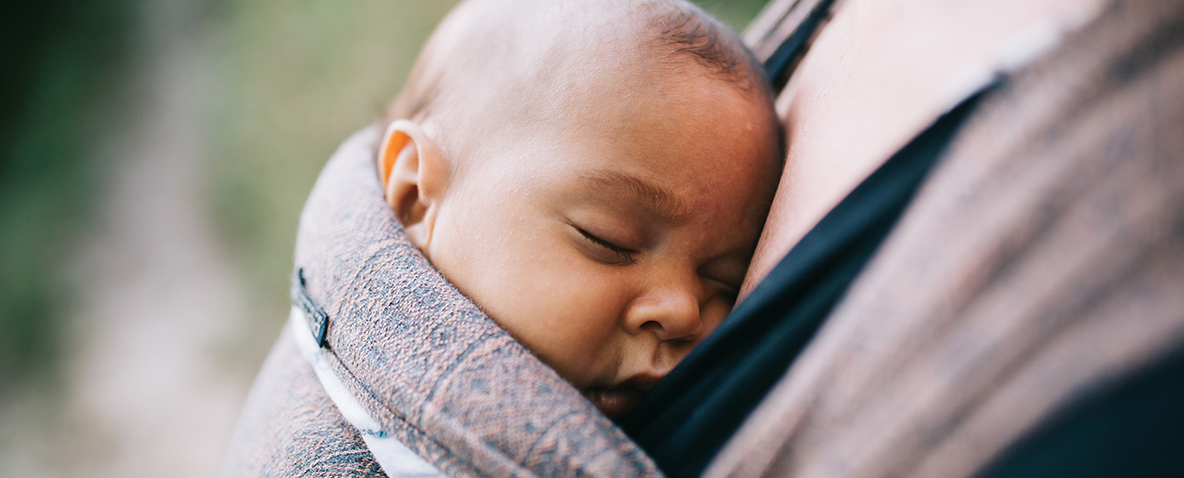
Keeping Your Baby S.A.F.E.
And now a few words about keeping your baby safe.
Check out the Resources Section for more information.
Always put your baby on their back to sleep in an empty crib.
It is always safer to put your baby in a cradle or crib to sleep. It’s okay if they fall asleep in your arms if you are alert or standing up. But babies get better sleep when they are in a crib, so use cribs for nap time and bedtime. Sleep is how your baby’s brain grows and develops. Babies need a lot of sleep.
Setting up a safe sleep environment—an empty crib with only a tight-fitting sheet in a warm and dark room—will help you and your baby settle in to this new routine. To learn more about safe sleep, check out The Early Days.
Unless they are in a safe sleep environment, never leave your baby unattended, especially on a changing table, floor, or in the car.
Infants younger than six months of age should only eat breastmilk or formula. Unless your doctor tells you otherwise, don’t give your young baby water, juice, or anything else.
Even before your baby can crawl or talk, they are very sensitive to their environment. Loud noises, changing schedules, and unsafe situations can upset a baby and interrupt their growth. Pay attention to your surroundings, and seek out safe, calm, stable places for you and your baby.
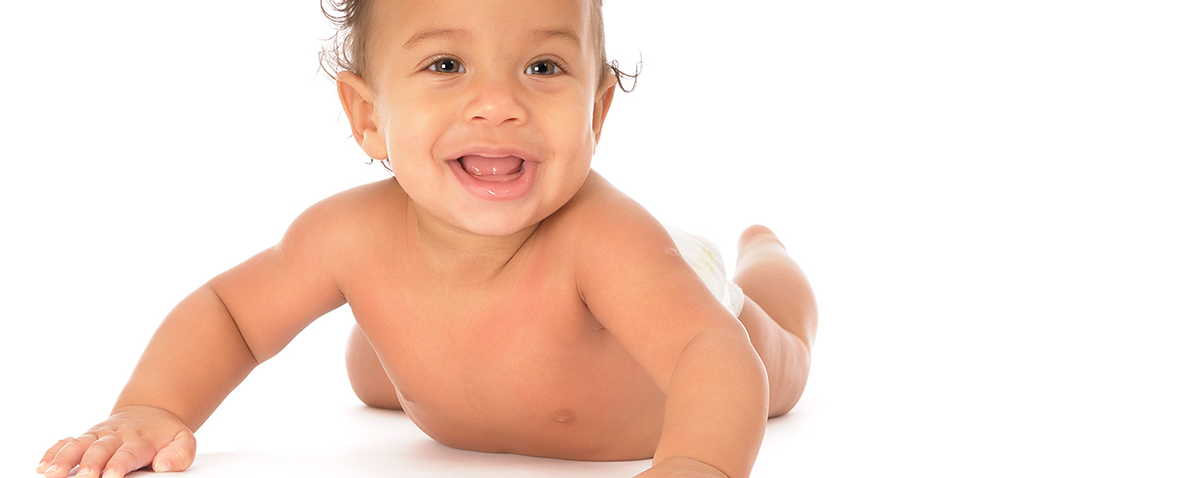
Communicating with Baby
Crying is how your baby tries to tell you what they need.
If your baby’s cries make you feel overwhelmed, try this:
- Put on soft music
- Call a friend
- Ask someone you trust to hold the baby so that you can take a break
Remember this little poem:
I’m strong enough to stand alone.
Smart enough to know when I need help.
And brave enough to ask for it.
Read along or listen to this section using the audio player.
Even when your baby is safe and well-cared for, there are going to be moments when they’re upset or crying. Crying can be very triggering for mothers. It’s hard to hear babies cry, especially when we’re not sure how to make it better. It may make you feel helpless or overwhelmed.
It can help to remember that crying is one of the few ways babies have to tell us what they need. As a new mom, you will start to learn ways to soothe yourself when your baby cries, and you will find ways to help soothe your baby as well.
Pretty soon you’ll be an expert on all the different types of crying your baby has. It can be fun to start to figure out when they’re wet or tired or hungry from all the sounds they make.
If you can stay open and curious, this early time can be one of exploration and bonding. If you feel your baby is crying too much or can’t be consoled, call your doctor or a support person. It’s always OK to ask for help.
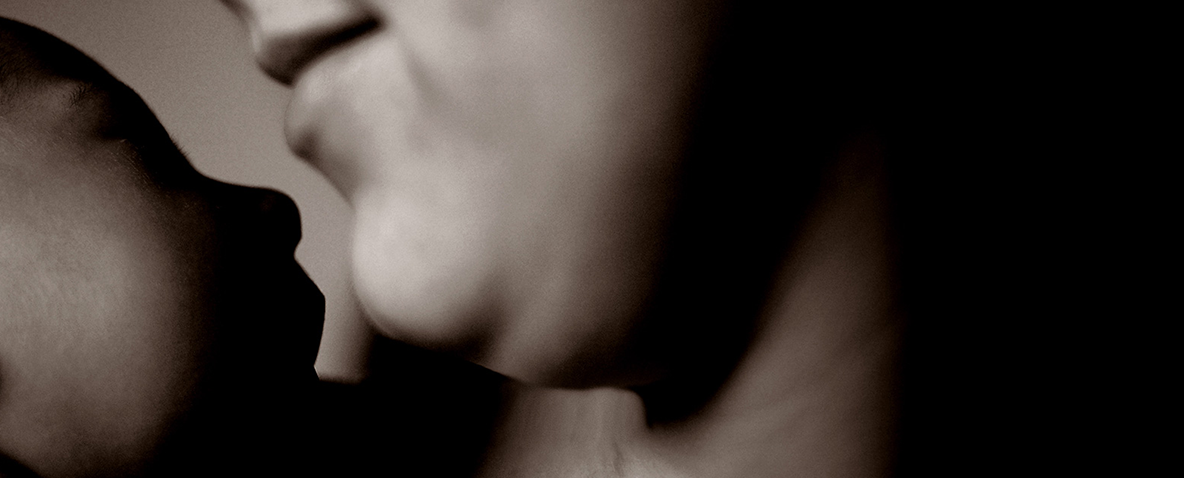
Neonatal Abstinence Syndrome (NAS)
Some babies who are exposed to opioids during pregnancy are born with NAS, or Neonatal Abstinence Syndrome.
If this is something you want to know more about, check out Birth Day or the NAS Guide
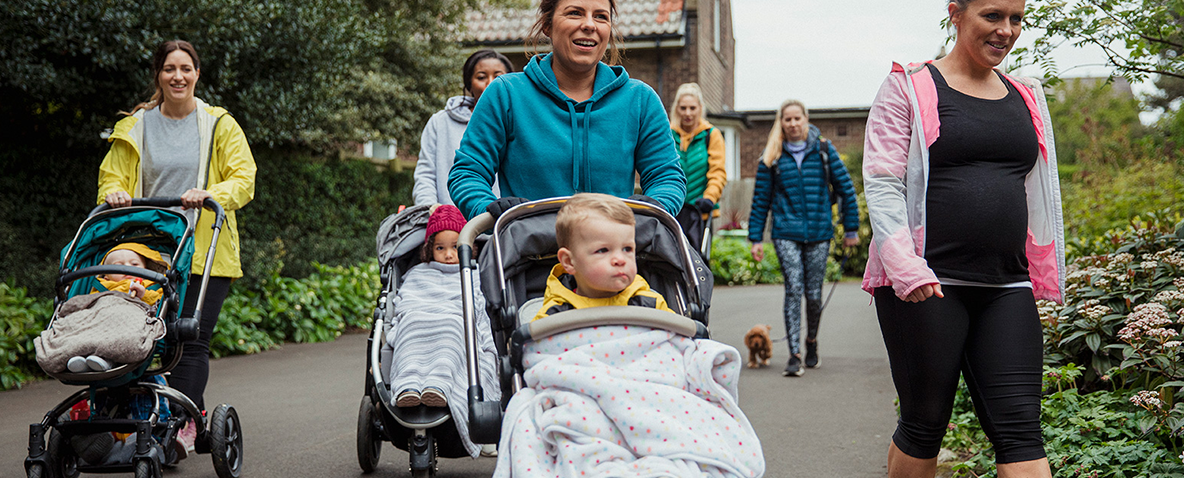
How to Take it One Day at a Time
Your recovery is important, so take care of yourself. Rely on your team and reach out for help and connection.
For more information about building a team of supports, check out Pregnancy. Check out our Resources Section for specific places to get help with recovery and parenting.
Read along or listen to this section using the audio player.
The most important task of early parenting is taking care of yourself. Your recovery is the most important thing! You can’t take care of a baby unless you are taking good care of yourself. It might feel weird to put yourself first, but it’s actually the best way to make sure you’ll be there for your baby in the long run.
This is the time to rely on your team for practical things like meals, chores like laundry and dishes, and babysitting, while you attend a meeting, go to an appointment, or take a nap! Your team can also help with support in managing all of the emotions that come with being a parent in recovery.
In addition to your team, use formal supports, too. Check out our Resources Section for specific places to get help with recovery and parenting. Parent groups, childcare, Early Intervention, and Family Resource Centers are good places to start. Ask the hospital social worker or your treatment provider, if you have one, for other ideas.
You are starting the brave and brilliant work of motherhood. By reaching out for help and connection now, you are building the supports you’ll need to be a successful parent in recovery for years to come. You are doing this courageous work for yourself, for your child, and for the women who come after you. Congratulations.
I am hopeful
You’ve finished this milestone.
These are the resources mentioned in this module:
